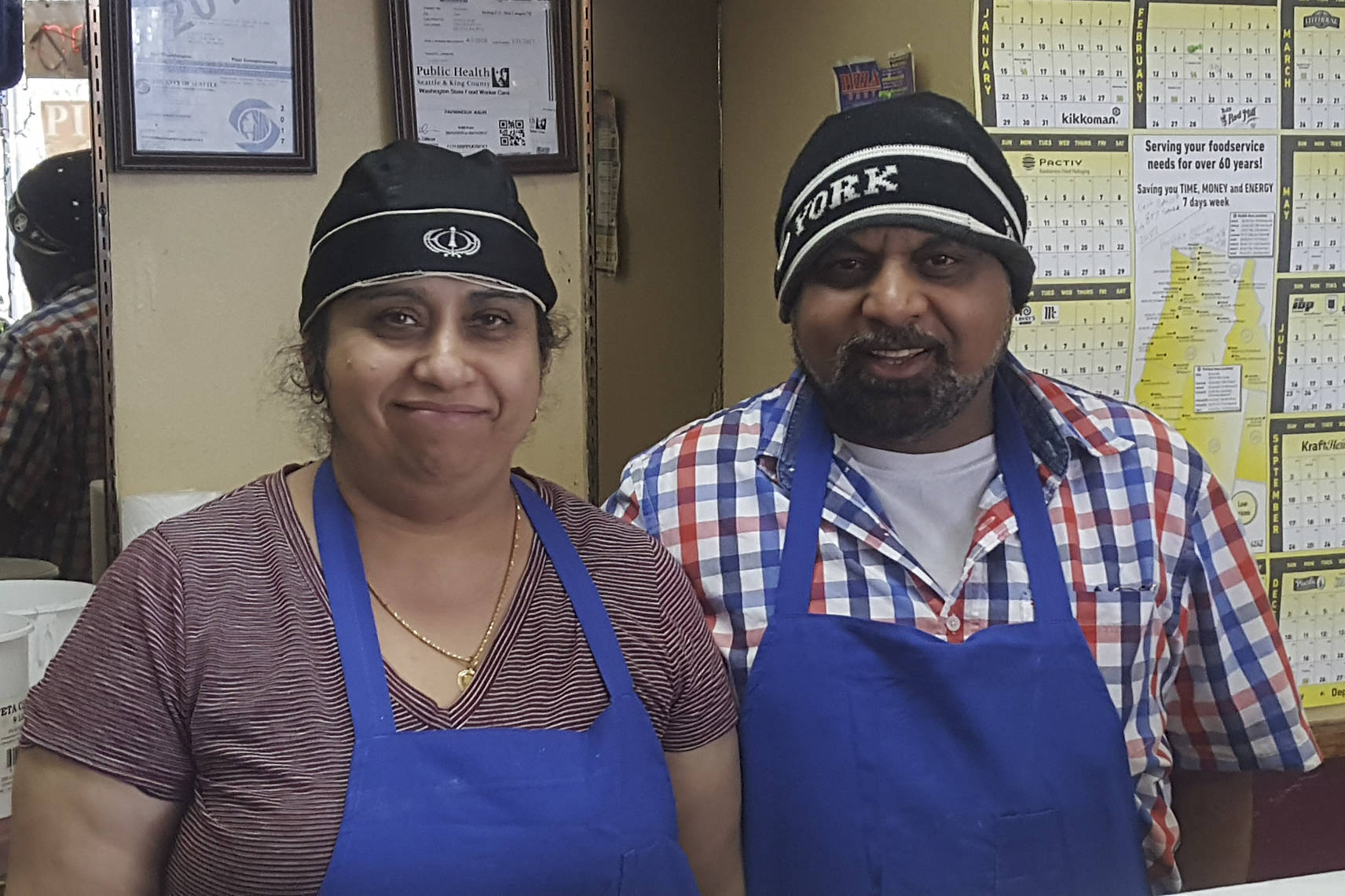A Pizza Mart is a labor of love for Jagajit Singh Samra and his wife. In the 20 years that they’ve owned and operated the West Seattle small business, they’ve rarely taken time off, regularly work 12 hour days, and still barely make ends meet. The store stays afloat thanks to a crop of faithful customers who come for the pizza and stay for other sundries like ice cream and soft drinks, just not “high end stuff.”
But lately some of his regulars have complained that he’s overcharging them for sodas. It’s no fault of his own. On Jan. 1, Seattle implemented a 1.75 cent per ounce tax on sweetened drinks, and Samra was forced to raise the prices of his beverages in turn. He says he’s lost customers to stores in neighboring White Center, which doesn’t impose a beverage tax, and that his bottom line has taken a hit as a result. Some of the Pepsi products he sells are starting to expire because less customers want to buy sugary drinks from his store. “The beverage tax is hurting us,” Samra said.
His frustration has led Samra to speak out against the tax, since he says it disproportionately impacts small business owners like him on the edge of city limits. Samra and other members of Keep Seattle Livable for All, a coalition of small business owners who oppose the tax, will share testimonials during a press conference at A Pizza Mart on Friday. The coalition doesn’t have a specific list of demands, but it asks city leaders to be “open minded about the impacts [of the tax],” said Keep Seattle Livable for All spokesperson Jim Desler. Samra, for one, hopes that the city will consider lowering the tax so his revenue doesn’t continue to suffer.
Coalition members also say that the beverage tax is convoluted. The tax applies to any non-alcoholic drinks with caloric sweeteners like soda, sports drinks, coffee and sweetened ice teas. But it exempts meal replacement drinks, 100 percent fruit juice, and beverages with less than 40 calories per 12 ounce serving. “There’s a complexity in implementing this that really puts the burden on the business owner,” Desler said.
The coalition also contends that the city didn’t properly inform business owners and consumers about the implementation of the tax last year. Samra said that he found out about it through a letter from Pepsi, his beverage distributor, just a couple of weeks before its roll out. He was surprised and angry when he received the letter informing him of the projected increase that would nearly double the price of a $200 drink order. “So where am I going to get another $200? Because I don’t make that much money,” Samra complained. Samra is not opposed to the tax overall, but he just wishes that it were only 1 cent per ounce. He also suggested that the city find other funding sources to help pay for the food-access, community college tuition, and education programs that will benefit from the tax.
Former Mayor Ed Murray proposed the tax last February to raise money for school programs designed to reduce racial disparities in education. Grassroots organizations convinced the City Council to direct some of the revenue to healthy meal programs like food banks and Fresh Bucks, which gives low-income people vouchers to buy fresh fruits and vegetables. In June, the Seattle City Council approved the proposal that is anticipated to generate a $15 million revenue in 2018. With its passage, Seattle joined the ranks of other areas that have imposed similar measures such as San Francisco, Philadelphia, Berkeley, Albany, Boulder, and Oakland, according to Reuters.
Despite the cries from some small business owners and customers, taxes on sweetened beverages have received widespread support throughout the country. Studies show a correlation between obesity, dental decay, and Type 2 diabetes, according to national health advocacy group Kick the Can. “By taxing sugary drinks, Seattle will be making sustained investments in food access efforts, early learning, and education programs to help make our city a better place for all,” said Seattle Healthy Kids Coalition co-chair Estela Ortega in a Jan. 5 press release. “Our Coalition applauds Seattle’s City Council for their overwhelming support for this new approach and for choosing community investments over the profits of the soda industry.”
But it’s difficult for Samra to see the benefits of the measure in his own life. “I don’t know why they’re going after small business, I have no idea,” Samra said about the city’s decision to implement the tax. “We barely make a living.”
mhellmann@seattleweekly.com








